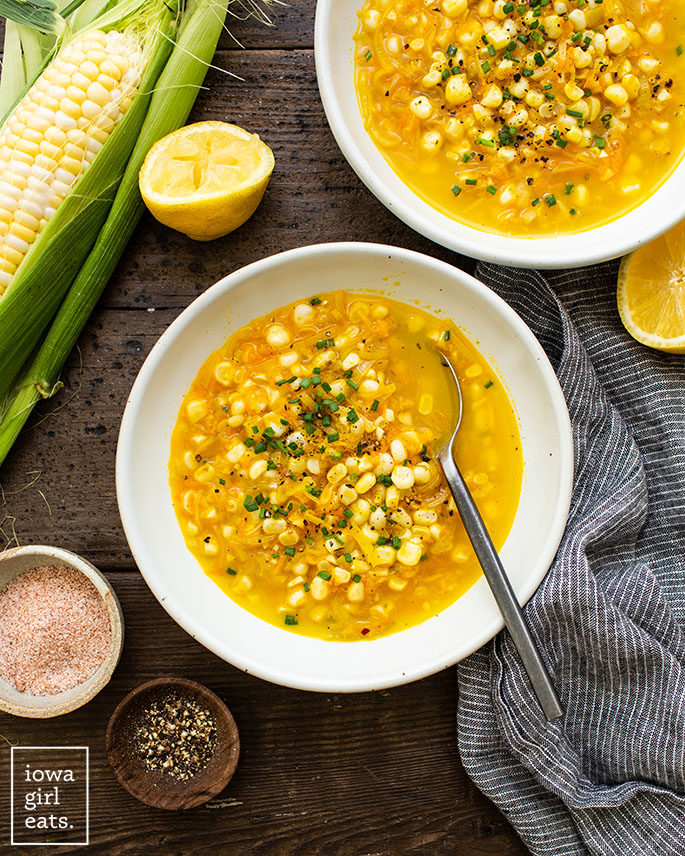14 Best Healthy Peanut Butter Alternatives
Peanut butter is a tasty, versatile, and nutrient-dense food that goes well with sweet and salty dishes alike.
A 2-tablespoon (32-gram) serving provides 200 calories, 16 grams of fat, 7 grams each of protein and carbohydrates, and 1.5 grams of fiber (
However, peanuts are the most common food allergens among adults, so you might need to substitute peanut butter for other ingredients from time to time (
This article reviews 14 delicious substitutes for peanut butter that will deliver all the flavor without the potential risks.
People with peanut allergies aren’t necessarily allergic to tree nuts, but many develop severe reactions due to the cross-reactivity between them. That means your body may react to allergenic molecules in tree nuts that are similar to those in peanuts (
If you’re substituting peanut butter because you ran out of it or want to try something new, then by all means, give these tree nut butters a try.
However, if your substitution is due to an allergy, these butters may not be safe alternatives.
1. Almond butter
Almond butter is made from roasted almonds. It may come with or without the skins, since some brands remove them to achieve a smoother texture.
Its nutritional value is similar to that of peanut butter, and it has pretty much the same uses and texture. That makes it a suitable 1:1 substitute for most recipes. However, using almond butter may alter the final product when used in baked goods (
In addition, almond butter has a higher content of healthy fats than peanut butter — namely mono- and polyunsaturated fatty acids (
It’s also rich in fiber, which keeps you feeling fuller longer. Like most butters, it has a low glycemic index, which means that it won’t spike your blood sugar levels (
2. Cashew butter
Cashew butter and peanut butter have similar textures, making cashew butter a good option for spreading or baking.
What’s more, it’s a great source of magnesium, a mineral required for blood pressure and blood sugar management. It provides 20% of the Daily Value (DV) in a 2-tablespoon (32-gram) serving, and it may help adults reach the recommended DV (
However, when it comes to its macronutrient content, it’s slightly lower in protein than peanut butter, providing 5.6 grams in the same 2-tablespoon (32-gram) serving (
While research on the health benefits of cashews is limited, one study found that consuming 28–64 grams of cashews per day lowered total and LDL (bad) cholesterol levels compared with the control group (
You may also swap peanut butter for cashew butter at a 1-to-1 ratio and use it as a sandwich spread or fruit dip, or enjoy it as a yogurt or oatmeal topping.
3. Walnut butter
Like peanut butter, walnut butter has a nutty flavor and spreadable texture.
It provides several beneficial nutrients, including dietary fiber and healthy fats, such as polyunsaturated fatty acids — namely omega-3 and omega-6 fatty acids. In fact, walnuts have the highest omega-3-to-omega-6 ratio among all tree nuts (
Research suggests that due to their high omega-3 fatty acid profile — a group of heart-healthy fats — consuming 21–75 grams of walnuts per day may lower blood cholesterol levels and improve blood vessel function, which may reduce the risk of heart disease (
You may enjoy walnut butter on toast, smoothies, and fruit, or in the same ways you’d consume peanut butter.
4. Hazelnut butter
Unlike Nutella, a brand of hazelnut spread that’s high in sugar and unhealthy fats, less processed hazelnut butters make a suitable and healthy peanut butter substitute.
Hazelnut butter is made from ground and roasted hazelnuts and may come with or without added chocolate for flavor — but without the added sugars. Yet, like Nutella, it’s mainly reserved for desserts and other sweet recipes.
Hazelnuts have a high monounsaturated fatty acid profile. In fact, they’re the second richest source of monounsaturated fatty acids among nuts — with a particularly high concentration of omega-9 fatty acids, which are beneficial for heart health (
Research shows that consuming 30–70 grams of hazelnuts per day may significantly reduce LDL (bad) and total cholesterol levels (
They’re also a good source of magnesium, calcium, manganese, iron, copper, and zinc. Plus, they’re considered antioxidant-rich, with a high content of vitamin E and phenolic compounds that may be anti-inflammatory (
5. Pecan butter
Like the other tree nuts on this list, pecans are a good source of heart-healthy fats, fiber, and antioxidants.
They’re associated with a reduced risk of heart disease and type 2 diabetes because they may improve blood cholesterol levels and insulin sensitivity — or how your cells respond to insulin (
They’re also a good source of magnesium, manganese, and zinc, and with only 4 grams of carbs per 2-tablespoon (32-gram) serving, they offer a lower carb count than peanut butter (
You can use pecan butter in most situations when you’d use peanut butter. It may be added to baked goods, spread on toast, or enjoyed with fruit and yogurt.
Summary
Tree nut butters, such as almond, cashew, walnut, hazelnut, and pecan butters, are great substitutes for peanut butter. They all have similar nutritional profiles and provide heart-healthy fats, fiber, and antioxidants.
Nut-free butters are the safest choice for people with peanut allergies.
6. Tahini
Tahini is a paste made from roasted sesame seeds. It’s typically used as a condiment in the Middle East.
Tahini is nutritionally similar to peanut butter. A 2-tablespoon (30-gram) serving provides 16 grams of fat, 5 grams of protein, 6 grams of carbs, and 1.4 grams of fiber (
Since tahini is made from sesame seeds, it’s rich in sesamin and sesamolin, two antioxidant compounds credited with healthy cholesterol and blood sugar management, blood pressure reduction, anti-cancer properties, and the reduction of menopausal symptoms (
Though tahini isn’t usually consumed on its own, it’s a good peanut butter swap for sauces and dressings. However, it may be used as a sandwich spread, as it pairs well with jams and jellies.
7. Sunflower seed butter
Sunflower seed butter is a tree nut- and peanut-free spread made from roasted, ground sunflower seeds. Yet, many consumers claim that its taste closely resembles that of peanut butter.
Nutritionally speaking, sunflower seed butter has higher iron, manganese, and vitamin E contents than peanut butter, providing 7%, 29%, and 49% of the DV, respectively (
Furthermore, sunflower seeds are naturally rich in omega-6 fatty acids and chlorogenic acid, which may support blood cholesterol and blood sugar management. As such, they’re linked to a reduced risk of heart disease and type 2 diabetes (
Sunflower seed butter makes a good peanut butter substitute for savory dishes like dressings and sauces. However, people with mugwort pollen allergy may react to it (
8. Coconut butter
Coconut butter is a spread made from shredded coconut meat.
Compared with peanut butter, it has less protein and more fat. It also has a slightly stiffer consistency due to its coconut oil content. As a saturated fat, coconut oil hardens at room temperature (
Despite being a source of saturated fat, the saturated fat in coconut oil comprises 65% medium-chain fatty acids, which are metabolically different than long-chain fatty acids (
Medium-chain fatty acids have been associated with health benefits, including improved brain function, a more favorable lipid (fat) profile, and a higher energy expenditure — leading to a negative energy balance and potentially supporting weight loss (
However, research on coconut oil’s effects on blood cholesterol is inconsistent. Some studies recommend keeping its consumption to less than 10% of your total calorie intake, as it may raise LDL (bad) cholesterol levels and thus increase your risk of heart disease (
Try adding coconut butter to your oatmeal, yogurt, or smoothie, or use it as a sandwich spread. Note, though, that this peanut butter substitute may be best in moderation.
9. Soy nut butter
Soy nut butter is made from roasted and ground soybeans. Its taste, nutritional profile, and thick and creamy consistency are similar to those of peanut butter (
Like most soy products, soy nut butter is a good source of protein and isoflavones, which are beneficial plant compounds that act like estrogen in the body. Therefore, it may help relieve menopausal symptoms caused by a decline in estrogen levels (
Soy proteins and isoflavones in soy products are also linked to beneficial effects on heart health by lowering triglycerides, LDL (bad), and total cholesterol levels (
Yet, keep in mind that soy nut butter is unsafe for people with soy allergies (44).
Like peanut butter, you can add soy nut butter to baked goods, oatmeal, toast, fruit, yogurt, smoothies, and sauces.
10. Granola butter
As intriguing as it may sound, granola butter is a nut- and gluten-free spread made primarily of humble oats. Other ingredients often include flax seeds, olive oil, and coconut oil.
Given that it’s made out of oats, granola butter is high in fiber and thus provides multiple health benefits, including prolonged feelings of fullness, improved blood sugar management, and cholesterol-lowering effects (
Granola butter works best as a peanut butter substitute for sweet sauces and dressings, as a spread for bread or pancakes, or as a topping for oatmeal and yogurt.
Summary
Some popular nut-free butters, such as tahini, sunflower seed, coconut, soy nut, and granola butter, are suitable peanut butter substitutes for people with peanut or tree nut allergies. They’re all rich in beneficial plant compounds that may have health benefits.
Fat is an essential macronutrient, and most people shouldn’t completely avoid foods that are high in fat, especially the health-supporting fats found in many nut butters, including peanut butter.
However, if you’re looking for alternatives to reduce a recipe’s fat content, you have options.
11. Powdered peanut butter
Powdered peanut butter is made by pressing and grinding roasted peanuts to remove their oils.
The process leaves a fine powder that retains its flavor but significantly reduces its fat content, making it the perfect substitute for those who love peanut butter but are looking to cut back on fat.
Since the oil is removed, this powdered version has four times less fat than an equivalent serving of regular peanut butter. It also boasts double the protein. However, it doesn’t provide the same heart-healthy fats (
Though powdered peanut butter is not spreadable, you can mix it with water to form a paste if needed.
You may add it to shakes, oatmeal, yogurt, dressings, dips, and baked goods.
12. Hummus
While hummus isn’t precisely a substitute ingredient you’d pick for a recipe that calls for peanut butter, it is a healthy alternative that works great as a dip or spread.
Hummus is a nutrient-dense spread made from cooked, mashed chickpeas, tahini, olive oil, lemon juice, and spices. A 2-tablespoon (30-gram) serving provides just 2.6 grams of fat, 6 grams of carbs, 1.2 grams of fiber, and 1.5 grams of protein (
Research shows that people who regularly consume chickpeas — which are a legume or pulse — or hummus tend to consume more dietary fiber, polyunsaturated fatty acids, folate, magnesium, potassium, iron, and vitamins A, E, and C (
Since chickpeas have a low glycemic index (GI), which means that they won’t spike your blood sugar levels, it’s believed that hummus supports weight management and glucose and insulin regulation (
Try hummus as a dip for veggies or a spread for bread, crackers, and pita chips.
Alternatively, chickpea butter may be a good choice.
Summary
Powdered peanut butter and hummus are good peanut butter substitutes when you’re trying to reduce your fat intake. Powdered peanut butter maintains flavor while significantly lowering fat, and hummus is a nutrient-dense spread.
This section includes two options that work as peanut butter substitutes when you’re specifically looking for a spread.
13. Guacamole
Guacamole is an avocado spread made from mashed avocados. Other ingredients may include lemon, onion, parsley, and salt, and some recipes even call for tomatoes or hard-boiled eggs.
Like nuts and tree nuts, avocados are rich in monounsaturated fatty acids, vitamins, minerals, fiber, and antioxidants. Research also shows that diets rich in avocado may significantly lower triglycerides, as well as total and LDL (bad) cholesterol (
Guacamole offers a thick consistency that’s great for dips, toasts, and sauces.
14. Cream cheese
Cream cheese is a highly versatile dairy spread with a smooth consistency and mild flavor.
Despite being a dairy product, it provides just 1 gram of lactose per 2-tablespoon (30-gram) serving. Therefore, some people with lactose intolerance digest it well (
What’s more, the same serving of cream cheese provides 10% of the DV of vitamin A, which is critical for vision (
Cream cheese works great for baked goods, sandwiches, or sweet or savory dips to enjoy with fruits or veggies.
There are also nondairy cream cheese substitutes on the market.
Summary
Guacamole and cream cheese are spreadable alternatives that work best as peanut butter substitutes when you need to prepare a dip to enjoy with fruits or veggies.
Peanut butter is a versatile ingredient included in numerous sweet and salty recipes. However, there may be times when you need to substitute it for a different ingredient.
Rest assured that there are plenty of nutrient-rich substitutes to choose from that will accommodate your needs while still being delicious.







